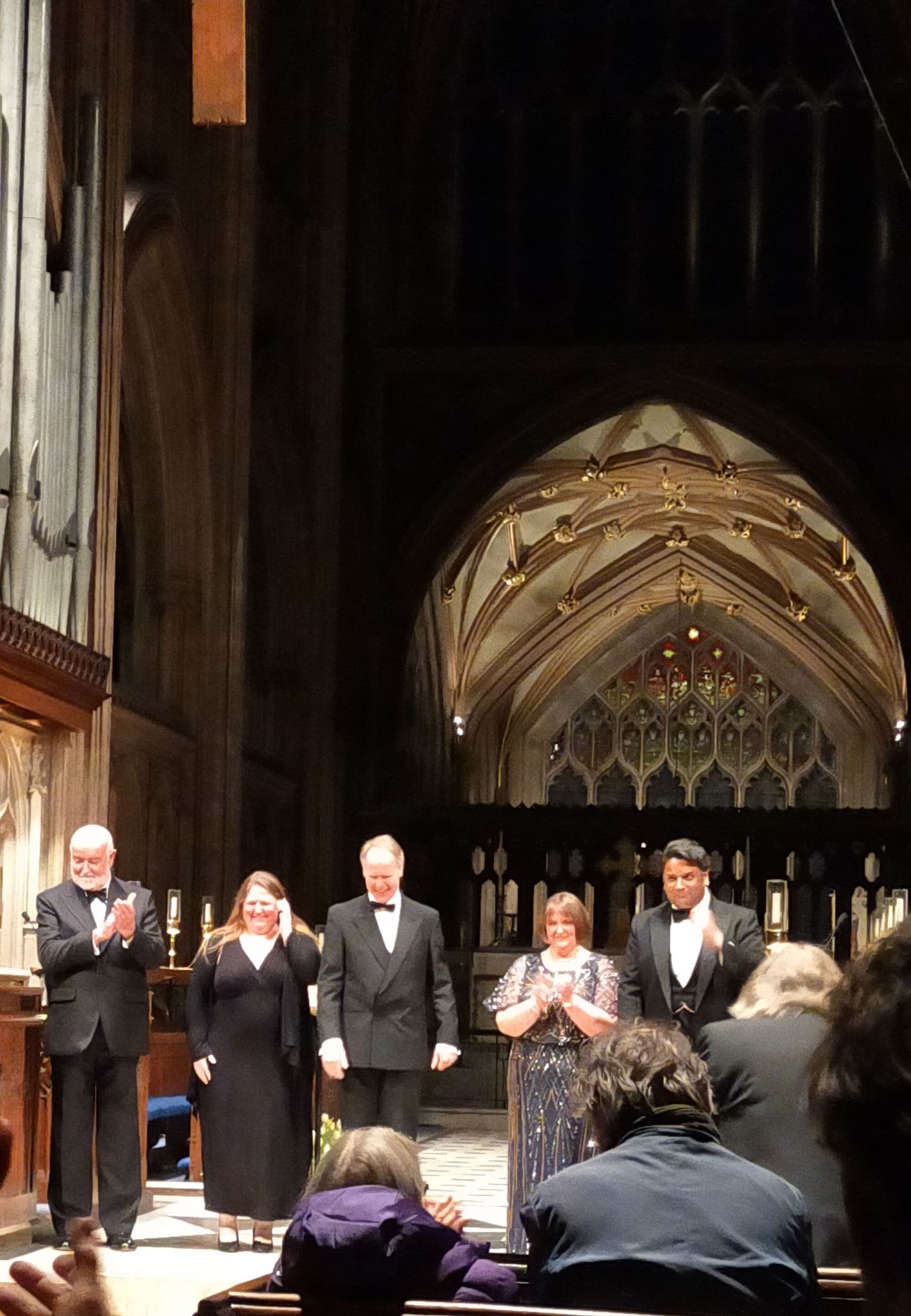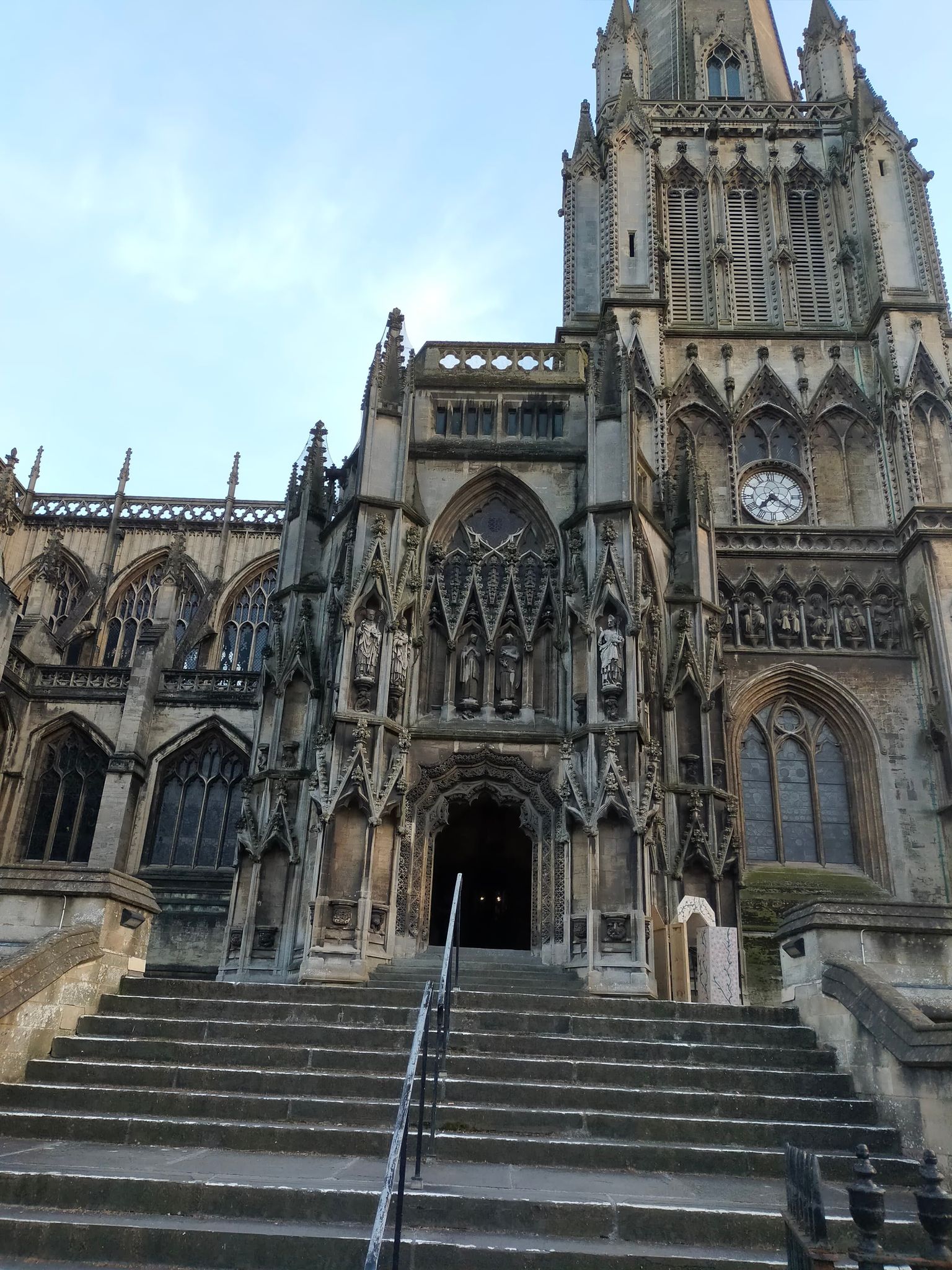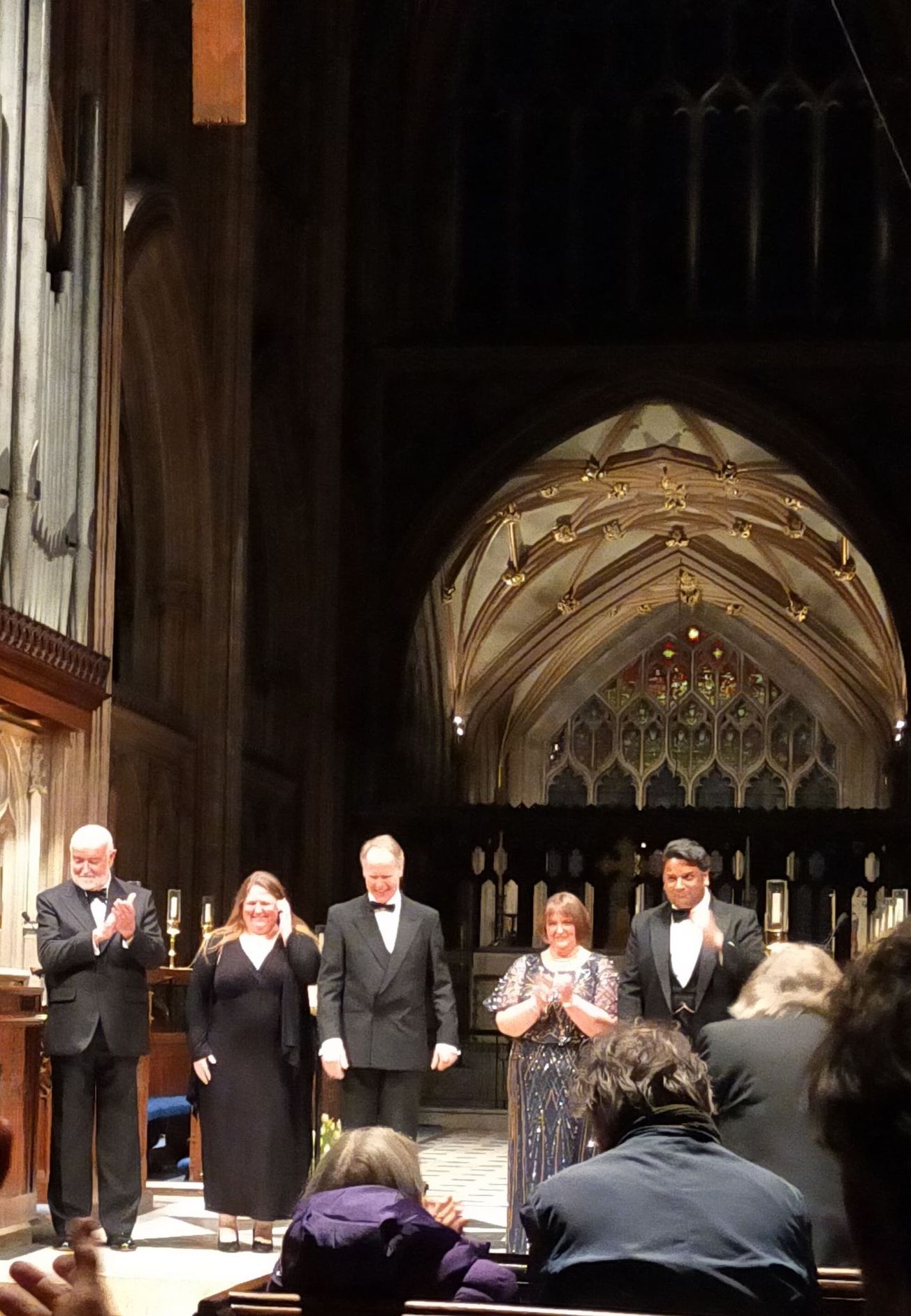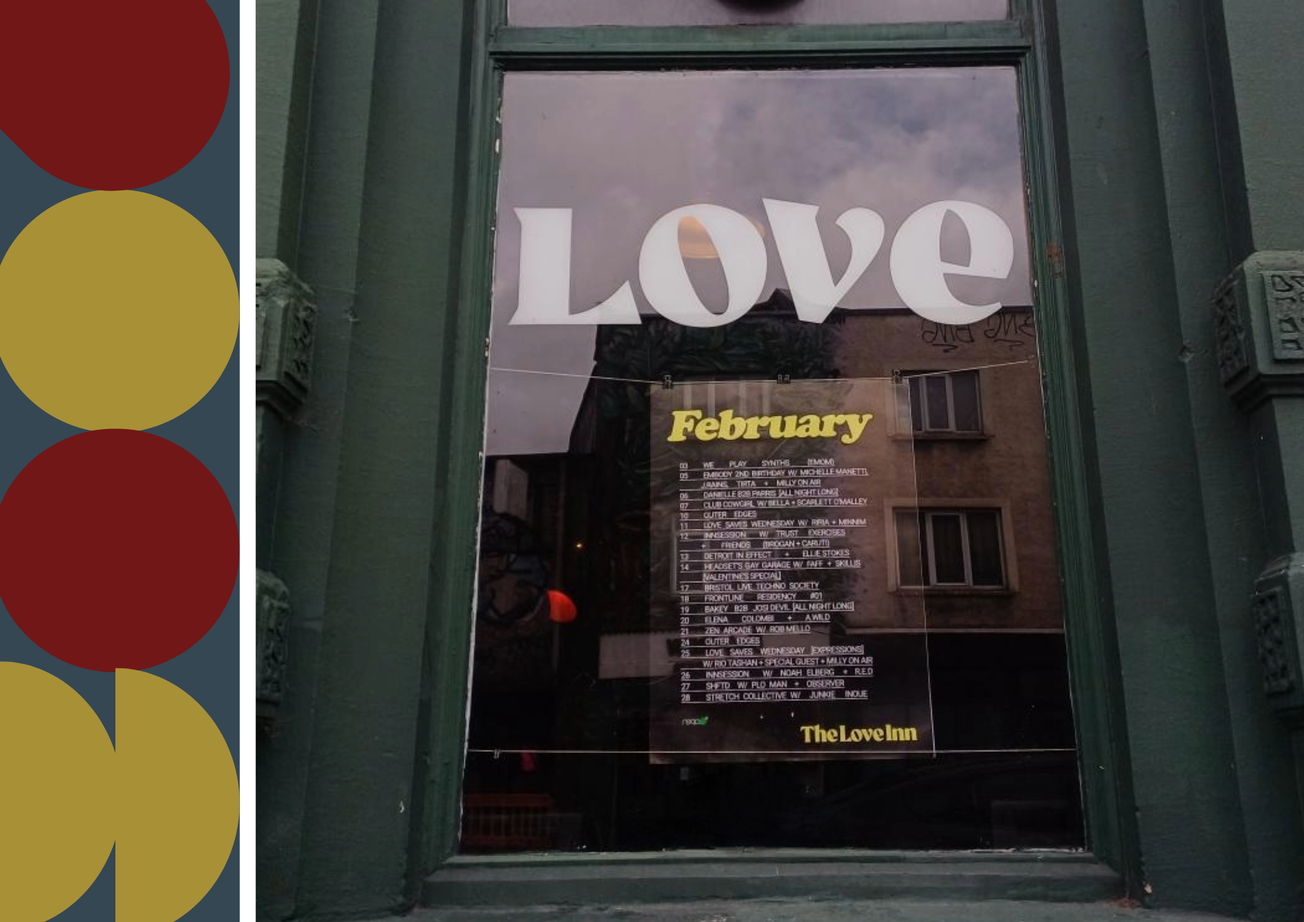By Milan Perera, Second Year English Literature and Community Engagement
The music of Richard Wagner is often considered the pinnacle of Western art, as it encapsulates the essence of European philosophical tradition, spirituality, theatre, and literature. He coined his operas ‘Gesamtkunstwerk’: complete works of art. And yet the music of Wagner remains the reserve of the elitist. Even the local music cohorts who are determined to bring the delights of opera to the masses remain aloof of Wagner due to the sheer artistic demands that go with it.
Bristol-based music ensemble Tarnhelm Opera embarked on a musical odyssey when it took upon itself the task of bringing Wagner to the public. Founded in 2019, Tarnhelm Opera performed the first instalment of Wagner’s ‘Ring Cycle’, Das Rheingold at various churches and other period buildings in the West Country, bringing the Promethean fire of Wagner’s music to the musically inquisitive. Initially met with incredulity for even attempting such an ambitious feat, Tarnhelm Opera has built up a loyal following over the last few years.
In their latest recital at St.Mary Redcliffe, Bristol Tarnhelm Opera managed to pull off the rare feat of transplanting the ‘Wall of Sound’ associated with Wagner to an intimate and yet grand space more convincingly than anyone could have dared to hope.
Photos of today's rehearsal in St Mary Redcliffe Church, Bristol, for our Wagner Highlights concert this Saturday.
— Tarnhelm Opera (@TarnhelmOpera) April 21, 2022
Whether you're new to opera or an afficionado, join us for an evening packed with #richardwagner musical treats!
Reserve your seats now:https://t.co/cUScIx3tqq pic.twitter.com/wJBtBJMQTP
Proceedings for the evening got off to a rollicking start with a spirited rendition of the overture to the ‘Die Meistersinger von Nürnberg’, featuring Claire Alsop on the organ. The grandiloquent overture was brimming with jollity, which was perfectly captured by Alsop.
The overture was quickly followed by the aria ‘Wahn! Wahn! Überall Wahn!’, sung by the titular character, Hans Sachs. Robert Marson’s velvety bass baritone voice managed to convey the equanimity, authority, and innate heroism of Sachs as he hopes for a tranquil passage of time for the much-awaited song contest.
Hans Sachs aria was quickly followed by two songs from the ‘Wesendonck Lieder’, which featured Emma Pooley on the vocals and Peter Blackwood on the piano. Wagner set to music five poems of Mathilde Wessendonck, who was both his patroness and muse during his Swiss exile. Pooley’s rendition of the first of the two songs, ‘Der Engel’ was characterised by an unutterable tenderness and longing that one may not associate with the grand style of Wagner. Pooley’s silvery vocals were masterfully accompanied by Blackwood and the final result certainly did not disappoint.

The next recital piece for the evening had the audiences enthralled as Roderick Hunt provided an electrifying rendition of ‘Mein Herr und Gott’ from Lohengrin. The role of King Henry in Lohengrin has proved to be an extremely puzzling and challenging assignment in the repertoire as it requires a bass baritone voice with an unusually higher register. Hunt’s great command in vocals was a sight to behold as the king prays pensively before Lohengrin and Telramund battle it out for the hand of Elsa.
King Henry’s prayer neatly segued into another showstopper piece from Lohengrin featuring Anando Mukerjee with a majestic rendition of ‘In Fernem Land.’ Mukerjee’s tenor voice has a great weight and sonority, particularly strong in the middle and bottom registers. In this aria, Lohengrin reveals his identity to Elsa at her bidding. Mukerjee’s rendition was graced with clear diction, expressive delivery and finesse which was met with raucous applause.
Following the interval, the audience was treated to a stirring rendition of perhaps the most recognisable piece of music by Wagner, ‘The Ride of the Valkyries’ featuring Claire Alsop on the solo organ. Used in movies such as ‘Apocalypse Now’ and numerous commercials, the reason for its enduring legacy is no mystery as it has an unmistakable martial feel to it.

‘Liebestod’ from ‘Tristan und Isolde’ has been the preserve of Wagnerian sopranos from Flagstad, Nilsson through Meier to Stemme. This iconic role has been the crowning moment for many soprano soloists. The proceedings for the evening perhaps reached its zenith when Emma Pooley provided a spine-tingling rendition of the ‘Liebestod.’ Pooley’s breath control and the layering of voice was a masterclass itself as she painted a poignant tableau of the heart-wrenching moment when Isolde processes the death of her lover, Tristan with a peaceful surrender.
The evening was bookended by an arousing and heartrending depiction of ‘Wotan’s Farewell’ from ‘Die Walküre’ by Robert Marson. Wotan embraces his daughter for the last time and kisses her eyes to sleep. Marson’s deeply affecting Farewell portrayed a kaleidoscope of emotions ranging from profound sorrow to a sense of justice to resignation.
The cavernous high-vaulted interior at the St. Mary Redcliffe was the perfect fodder for the swelling organ music and the soaring vocals.
Review: Corvus Consort – ‘Reproaches, Lamentations and Penitence’ @ Clifton Cathedral.
Cotham Club presents 'Heralding the Wind'
Binding all this together musically for the evening was Claire Alsop on the organ. She launched the daunting scores with a perfectly paced and elegantly phrased approach maintaining the balance between grandeur and intimacy for the two-hour recital.
Speaking to Epigram shortly after the recital, Robert Marson, the founder of the Tarnhelm Opera pointed out that "the response we’ve had for ‘Das Rheingold’ was incredible. It was a challenge to start with but with the right settings and the soloists not impossible". They are determined to bring more lashings of Wagner to venues around the West Country. So, watch the space.
Featured image: Milan Perera
Are you a fan of classical music?








